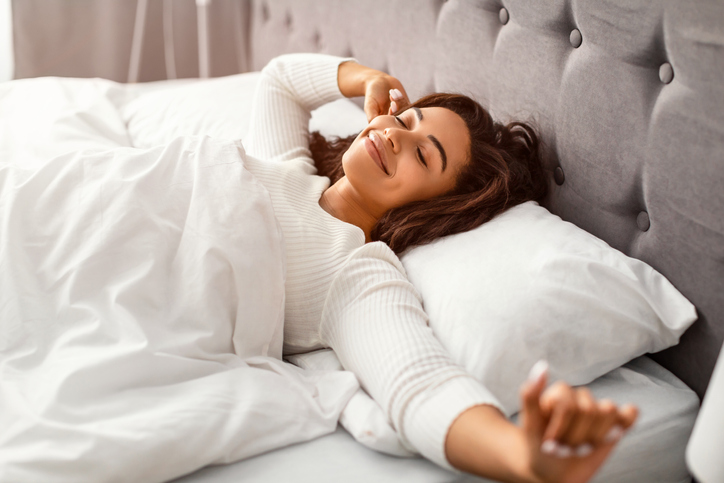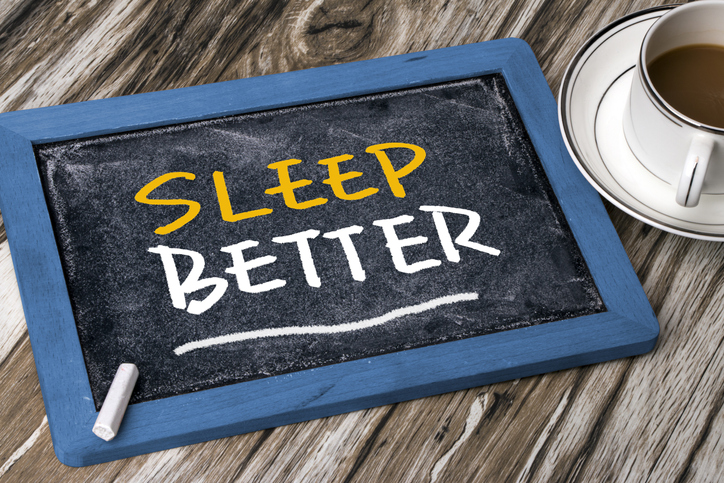Summer time is just a few months away. And while there are a lot of great things to look forward to, such as better weather, barbecues, beach days, and vacations, there are a few things that you may realize about summer days. One of the common issues that many people deal with is difficulty sleeping during the summer months. Perhaps you have trouble falling asleep or staying asleep, because there are more daylight hours and hotter temperatures, these factors can definitely contribute to sleeping difficulties. In this blog, we will discuss some helpful tips that can help you improve your sleeping habits during the summer – continue reading to learn more.
Why is it More Difficult to Fall Asleep in the Summer?
According to studies, seasonal changes can impact our sleeping habits. In fact, researchers discovered that individuals are more likely to wake up earlier during the summer and sleep issues, like fatigue or insomnia, were less common during the winter. Keep in mind that sleep issues certainly still occur in the winter; however, are less common compared to summer time.
Here are some reasons as to why your sleeping habits during the summer aren’t as adequate:
More daylight hours
While we all love daylight saving time, which is the time when we advance our clocks forward so that darkness falls at a later time, studies have shown that exposure to light later in the day can contribute to increased episodes of waking throughout the night and less deep sleep. Deep sleep, also known as slow-wave sleep, is the phase that contributes to restfulness. When our body sees light, it can disrupt our sleep.
Slows down melatonin release
When it gets dark, our circadian rhythm, otherwise known as our body clock, signals that it is time for sleep and releases melatonin. Once the sun comes up, melatonin production stops, which allows our body to get ready for the day.
Stress
Another contributing factor that can hinder your sleeping habits is stress. If you’re stressed and have a lot on your mind, this can certainly impact your melatonin levels, which can ultimately switch off.
Increased temperatures
Increased temperatures, in combination with longer daylight hours, can also disrupt your sleep. When your body is too warm or overheated, it moves it out of a relaxed state and gradually moves into a more heightened state of awareness. When our body temperature is balanced, it helps us feel more relaxed, ultimately leading to a deeper and more restful sleep.

 5 Tips for Better Sleep
5 Tips for Better Sleep
Now that you have a better understanding of what can impact your sleep, continue reading to learn more about how to improve your sleep.
Consistency is key
Having a consistent sleep schedule is of paramount importance. When you go to bed at a certain time and wake up at a certain time, this can help you maintain a sleep routine. And don’t worry – going to sleep later or waking up later than your usual times is fine every now and then. Ultimately, though, establishing a sleep schedule that you can follow for the most part is what’s important.
Reduce your exposure to daylight
Another helpful tip to improve your sleep is by reducing your exposure to daylight. Keep your curtains shut – or better yet, invest in some blackout curtains or a sleep mask that can limit sun exposure and will help you stay asleep a little longer.
Maintain a low nighttime temperature
To help maintain a low nighttime temperature, try to keep your sleep space ventilated. Whether you need to open a window or use a fan, this can help with maintaining the best temperature for sleep, which is about 65°F.
Use lightweight fabrics
If the increased temperatures during the summertime hinder your sleep, try finding some lightweight pajamas and thin, moisture-wicking bed sheets. Fabrics like silk, satin, or bamboo are great options for your bedsheets, pillowcases, and comforter.
Ditch screen time before bed
Last but certainly not least, try ditching any screen time before bed. Let’s face it – we’re all guilty of using our phones or tablets right before bed. But did you know that this can reduce the production of melatonin, which is the hormone that controls your sleep-wake cycle? Using your phone or tablet right before bed can negatively affect your sleep schedule, making it more difficult to fall asleep and wake up the next morning. Therefore, it’s best to not use your phone or tablet before bed if you want to improve your sleep.
Contact Our Team
If you struggle with insomnia or fatigue, our team is here to help provide you with the guidance you need to improve your sleep. And if necessary, we are here to provide you with treatment. Our team at Vermont Urgent Care is committed to providing our patients with unmatched treatment and care. With over 40 years of experience, we are dedicated to providing five-star service to our patients, providing them with the medical treatment that they need and deserve. We are a full-service medical facility offering care for patients who are suffering from non-threatening illnesses or injuries.
If you are looking for a team of medical experts that can provide you with excellent service and care, we are here to help every step of the way. Contact us today to schedule an appointment at our downtown urgent care or feel free to visit us as a walk-in patient.
